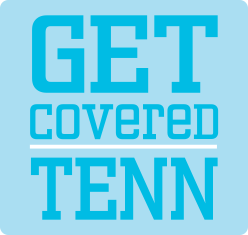Health insurance isn’t just about paperwork and premiums—it is your shield against uncertainty, your partner in staying healthy, and your safety net when life throws unexpected challenges. Healthcare expenses continue to rise, and insurance plays a vital role in safeguarding your health and finances. Whether you are a Tennessee native or preparing to move to The Volunteer State, Get Covered Tennessee is here to help you understand the fundamentals of health insurance and how it can help you navigate healthcare.
Understanding Health Insurance
Health insurance is a contract between you and an insurance company that helps cover medical expenses, so you don’t have to pay for everything on your own.
Basic Insurance Terminology
- Premiums: This is the amount you pay, typically monthly, to maintain your health insurance coverage.
- Deductibles: The deductible is what you must pay out of pocket before your insurance starts covering costs.
- Coinsurance: The percentage of the costs of a covered health care service or prescription drug you pay after you’ve paid your deductible.
- Co-payments: These are fixed amounts you pay for covered healthcare services, typically due at the time of service.
- Out-of-pocket maximums: This is the most you must pay for covered services in a plan year. Once you reach this limit, the insurance pays 100% of the covered costs.
- In-network: The facilities, providers, and suppliers your health plan has contracted with to provide health care services.
- Out-of-network: A provider who doesn’t have a contract with your health plan to provide services to you. You will usually pay more to use them.
Types of Health Insurance Plans
There are different types of health insurance plans:
- Employer-sponsored plans: Provided by your employer, often with premiums deducted from your paycheck.
- Individual plans: These are purchased directly from an insurance provider for individuals and families. Individual health plans are available through the ACA Marketplace or directly from the insurer.
- Government-sponsored plans: Government insurance, like Medicaid and Medicare, is designed to assist specific populations, such as those below certain income thresholds or of a certain age.
Benefits of Having Health Insurance
Having Tennessee healthcare insurance offers numerous advantages:
Financial Protection and Cost Savings
Health insurance covers medical expenses, reducing the financial burden on individuals and families. It also lowers out-of-pocket costs through negotiated rates with healthcare providers.
Access to a Network of Healthcare Providers
Insured individuals have access to a network of doctors, specialists, and hospitals, ensuring timely and quality care.
Preventive Care and Wellness Services
Many plans cover preventive services like annual check-ups, vaccinations, and screenings at no extra cost, promoting early detection and treatment of health issues.
Coverage for Unexpected Medical Emergencies
Health emergencies can happen unexpectedly. Insurance ensures you receive necessary medical care without incurring overwhelming debt.
Factors Influencing the Need for Health Insurance
Several factors highlight the importance of quality health insurance, and GetCoveredTenn is here to help you navigate these challenges:
- Rising Healthcare Costs: Medical expenses continue to increase, making insurance crucial to managing healthcare expenses.
- Potential Health Risks and Medical Conditions: Anyone can fall ill or require urgent or long-term medical attention. Insurance ensures you are prepared for unexpected health issues.
- Personal and Family Considerations: Protecting the health and well-being of yourself and your loved ones is a top priority.
- Provides financial security: Having health insurance safeguards you and your family and protects your savings.
Find the Right Plan for Your Needs with Get Covered Tennessee
Health insurance isn’t just about medical coverage, it’s about empowerment. It’s about making choices that protect your well-being and ensure you can live your life to the fullest. However, navigating health insurance options doesn’t have to be overwhelming. Get Covered Tennessee, a service of the nonprofit agency Family & Children’s Service, is committed to helping Tennessee families access affordable and comprehensive health insurance options. Our experts are dedicated to providing free and unbiased enrollment assistance to families to find affordable healthcare in Tennessee. Visit GetCoveredTenn to schedule an appointment and ensure you and your family have the necessary health coverage. Take the first step today towards a healthier tomorrow.
Image Credits: Niyazz // Shutterstock



